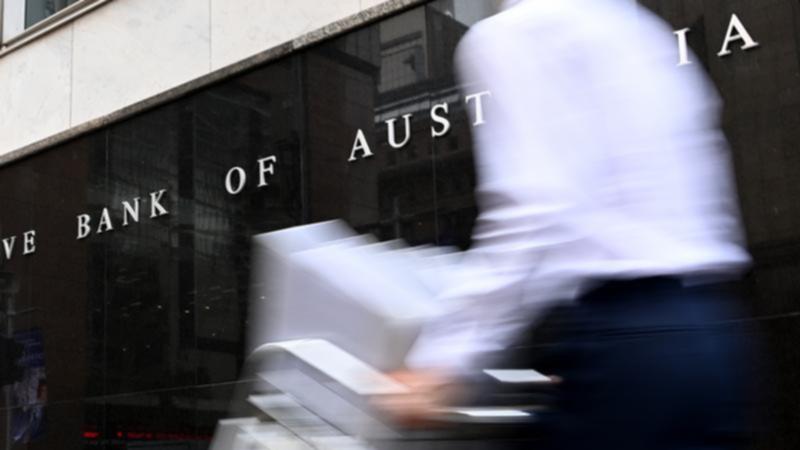Economists survey favours RBA rate cut although they are less confident than market
A survey of 32 leading Australian economists has tipped the Reserve Bank to cut interest rates this week, but more than one in five remain unconvinced.

A clear majority of economists believe the Reserve Bank of Australia will cut rates at its next board meeting, but they are less convinced than market pricing suggests.
Out of 32 Australian economists surveyed by AAP, 25 expected the RBA to drop its cash rate target by 25 basis points on Tuesday, bringing an end to 15 months with no change to monetary policy.
Expectations for a cut have ratcheted up in recent weeks, following a softer-than-expected December quarter CPI print that brought annual underlying inflation close to the RBA’s target band.
Sign up to The Nightly's newsletters.
Get the first look at the digital newspaper, curated daily stories and breaking headlines delivered to your inbox.
By continuing you agree to our Terms and Privacy Policy.That was enough to convince Andrew Barker, head of research at non-profit think tank CEDA.
“The RBA is forward-looking in its interest rate decisions, as it takes a year or more for the full effects of lower interest rates to boost economic activity and thus prices,” he told AAP.
“This means above-target underlying inflation is not enough reason to avoid cutting rates.”
Traders are pricing in a 90 per cent chance of a cut, but many economists believe it will be a much closer-run thing than the market expects, with 22 per cent of economists surveyed expecting no change.
Morgans chief economist Michael Knox, Deloitte Access Economics partner Stephen Smith, Oxford Economics Australia’s Sean Langcake, HIA chief economist Tim Reardon, KPMG’s Brendan Rynne, University of Sydney professor Stella Huangfu and Judo Bank’s Warren Hogan predicted the RBA to hold for a 10th straight meeting.
“Even though the CPI quarterly trimmed mean has fallen to 3.2 per cent, we think that unemployment at four per cent is too low for a decline in inflation down to a sustained level of the RBA target of 2.5 per cent,” Mr Knox said.
Some economists such as UNSW professor Richard Holden, former RBA board member Warwick McKibbin and Steven Hamilton of George Washington University are predicting a cut, but believe it would be a bad idea.
“Market pricing has strongly favoured a cut for a while and RBA officials have had opportunities to lean against it but have not. Not cutting given market pricing would then be a big shock,” Professor Hamilton said.
“But, I think if they do cut, it will be all or nearly all the relief provided this year because the fundamentals (particularly the labour market and global outlook) simply do not offer much additional capacity for them to do so.
“As such, I would personally not cut, and would prefer to wait and see if core inflation continues to fall before doing so.”
Prof Hamilton is not alone in thinking it will be a “hawkish hold”.
Nomura senior economist Andrew Ticehurst was confident the central bank would not deliver a back-to-back cut in April, given price growth and global uncertainty remain high.
“I expect its messaging to be cautious, noting that any further policy easing is highly reliant on future (quarterly, not monthly) inflation developments, which are of course as yet unknown,” he said.
Following the RBA rates decision and Statement on Monetary Policy update on Tuesday, the Australian Bureau of Statistics is due to release wage price index data on Wednesday and labour force statistics on Thursday.
RBA governor Michele Bullock will face a parliamentary grilling over her rates decision in Canberra on Friday, rounding out a monumental week on the economic front.
The benchmark S&P/ASX200 index on Friday finished up 28.6 points, or 0.34 per cent, to 8,568.6, while the broader All Ordinaries climbed 20.9 points, or 0.24 per cent, to 8,825.1.
The benchmark S&P 500 edged down 0.01 per cent to end the session at 6,114.63 points.
Of the 11 S&P 500 sector indexes, seven declined, led lower by consumer staples, down 1.16 per cent, followed by a 1.11 per cent loss in healthcare.
US markets will be closed on Monday for the Presidents Day holiday.
